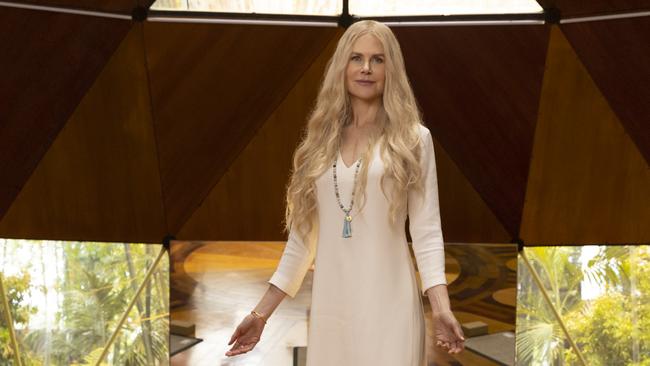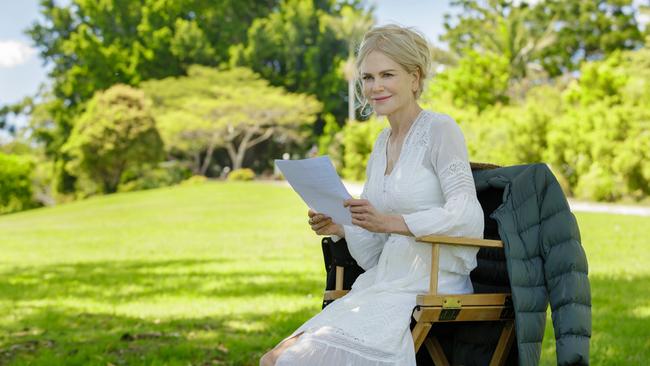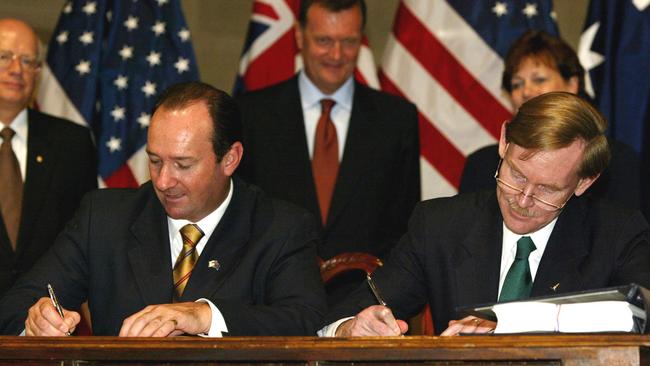Australian streaming quotas could violate US free trade agreement, tech giants warn
A showdown looms between streaming giants and the Albanese government over proposed local content quotas that some say could violate our US free trade terms.

A showdown is emerging between streaming giants and the Albanese government over proposed local content quotas, with warnings that such a move could breach Australia’s free trade agreement with the US.
The government intends to introduce new laws that will force streaming providers such as Disney+, Amazon Prime Video and Netflix to spend up to 20 per cent of revenue generated in Australia on local content.
The government aims to ensure Australian stories still appear on Australian screens as more viewers shift to streaming services, which unlike traditional broadcast media do not have any local content regulations.
“It is important that streaming services invest in developing Australian content in key genres, including children’s content, scripted drama and documentaries,” the government said in its National Cultural Policy document.

But the problem is most of the streaming platforms are US-based.
The Computer & Communications Industry Association – which counts Amazon, Apple, Google and other tech titans as members – has said a move to enforce content quotas could violate several provisions of the US-Australia Free Trade Agreement, which came into force in 2005.
The FTA prohibits preferential treatment for digital products based on the national origin of an “author, performer, producer, developer, or distributor”.
“Australia’s proposed requirements would confer preferential treatment to Australian-based content (digital products) based specifically on several of the factors cited – authors, performers, producers and distributors,” the CCIA said in a blog post.
“The proposed mandates could also violate Article 11.9 of AUSFTA’s Investment Chapter (Performance Requirements), which prohibits measures designed to ‘achieve a given level or percentage of domestic content’.”
The government can break that part of the free trade agreement, if a finding is made that Australian content is not available to Australian consumers.
However, the CCIA said this condition was not “remotely close to being met”, citing Screen Australia data. “Between 2022 and 2023, $2.34bn was spent for drama productions in Australia, with $1.22bn coming from foreign providers – this reflected a 31 per cent increase from the five-year average,” it said.
But the latest figures from the Australian Communications and Media Authority show that streaming providers’ spending on Australian programs fell 3.3 per cent to $324m last year. ACMA said that, while overall expenditure dropped “slightly”, there was more Australian content available across all five streaming services, with a total of 3757 local titles, compared with 2345 the previous year.

But Amazon has warned that many popular series – such as Nine Perfect Strangers, which was based on Australian author Liane Moriarty’s novels, starred Nicole Kidman and was filmed in Byron Bay – do not qualify as an Australian drama, given it wasn’t produced under the complete control of Australians. This skews “local content figures”.
In a letter sent to policymakers late last year, and which The Australian has obtained, Amazon said its documentaries: The Wiggles, The Test and The Defenders also would not qualify for the same reason.
“Since 2019, Prime Video has invested in 27 (now 28) Australian Originals, bringing back beloved series Neighbours, and Australian-related series such as Nine Perfect Strangers. Our investments have resulted in more than 2500 jobs across Australia,” Amazon wrote in its letter.
Amazon would not comment on the letter but Hushi Kharas, head of Prime Video Australia, said: “We support an investment obligation that is fair, sustainable and flexible.
“However, the government’s current proposals don’t meet those objectives. If we were forced to invest in a narrow type of Australian drama, at a level that is inconsistent with consumer demand, we would be forced to make trade-offs between what consumers want to watch and what we are regulated to make.
“We look forward to continued constructive engagement with the government.”
Amazon also warned that such quotas would also be inflationary, making locally produced drama more expensive, increasing demand for content production, which was “already at capacity”.

Free TV Australia, which represents commercial broadcasters, has also warned that enforcing quotas on streaming providers would drive up production costs.
But the government is under pressure to enforce content quotas. In May last year, Greens senator Sarah Hanson-Young said the party would “not support carve-outs for streamers”.
“We are calling for streaming giants like Netflix, Disney, Amazon and Stan to reinvest 20 per cent of their Australian earnings in local content, with a sub-quota of 20 per cent for children’s television,” Senator Hanson-Young said at the time. “While the threat of regulation may have prompted streaming services to commission local content in the short term, quotas are needed to ensure the long-term certainty of the local screen industry.”
Canada approved similar legislation in 2022. But the Handmaid’s Tale – despite being based on a Canadian author’s work and filmed in Canada – fell outside the local content definition, because like Nine Perfect Strangers, it was financed by US producers.







To join the conversation, please log in. Don't have an account? Register
Join the conversation, you are commenting as Logout